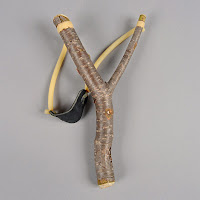Kite
“I wondered if that was how forgiveness budded; not with the fanfare of
epiphany, but with pain gathering its things, packing up, and slipping away
unannounced in the middle of the night.” -Amir
 The kite can be viewed as a symbol for
achievement through sacrifice. Amir had
always secretly envied Hassan for earning Baba’s attention and pride, and wanted
Baba to be proud of him too. In order to win over his father, he won the kite
fighting tournament and had Hassan bring the kite home, at the cost of Hassan’s
well-being. Amir wanted so badly to win the kite and his father’s affections
that he didn't stop Assef from violating Hassan, because he knew that Assef was
stronger than he was and that he could lose the kite if he interfered. That
day, Hassan’s dignity was lost and
Amir gave up his integrity in favour of pride. Another instance where the
symbolism of the kite is particularly noticeable is at the end of the book when
Amir is flying a kite with Sohrab. Amir had to risk his own life to save
Sohrab, but in the end he prevailed and in a way, he earned Hassan's forgiveness.
The kite can be viewed as a symbol for
achievement through sacrifice. Amir had
always secretly envied Hassan for earning Baba’s attention and pride, and wanted
Baba to be proud of him too. In order to win over his father, he won the kite
fighting tournament and had Hassan bring the kite home, at the cost of Hassan’s
well-being. Amir wanted so badly to win the kite and his father’s affections
that he didn't stop Assef from violating Hassan, because he knew that Assef was
stronger than he was and that he could lose the kite if he interfered. That
day, Hassan’s dignity was lost and
Amir gave up his integrity in favour of pride. Another instance where the
symbolism of the kite is particularly noticeable is at the end of the book when
Amir is flying a kite with Sohrab. Amir had to risk his own life to save
Sohrab, but in the end he prevailed and in a way, he earned Hassan's forgiveness.Pomegranate Tree
“There was brotherhood between people who had fed from the same breast,
a kinship that even time could not break. - Amir”
Amir and Hassan have always been close as
brothers, even though they were never aware of it. The pomegranate tree was
sort of a sanctuary for them; a place where childish naivety and carefree
imaginations ran rampant and their understanding of each other deepened. The
pomegranate tree symbolizes childhood, innocence and loyalty. During their
childhood years, the pomegranate tree flourished, like their friendship, and
bore many fruit. Amir and Hassan even carved their names into the bark: “Amir and
Hassan, the sultans of Kabul,” demonstrating the reckless lack of fear that
often comes with being a child. There was also that time when Amir threw
pomegranates at Hassan under that tree to try to invoke Hassan’s anger to atone
for his own sins, but Hassan, being loyal to Amir, merely squashed a
pomegranate onto his own face. However, when Amir returned to Kabul and learned
that Hassan had died, he found that the pomegranate tree was now withered and
almost dead and bore no fruit. Amir and Hassan’s childhood was long gone, but
Amir is still connected to Hassan through his need to rescue Sohrab.


The Slingshot
“His hand was cocked above his shoulder,
holding the cup of the slingshot at the end of the elastic band which was
pulled all the way back. There was something in the cup, something shiny and
yellow. I blinked the blood from my eyes and saw it was one of the brass balls
from the ring in the table base. Sohrab had the slingshot pointed to Assef’s
face”
Hassan is most adept at using his slingshot to
defend Amir. It is almost like his signature item. Unlike Assef with his brass
knuckles, Hassan wields his slingshot to uphold justice and with caution. The
slingshot is a symbol for justice and standing up for others. Just like how
Hassan defended Amir against Assef when they were children, Sohrab also
protected Amir from Assef with his slingshot when Amir was trying to rescue
him. Sohrab might not have known who Amir was, or the history between him and
Assef, but even a child like him can sense that what Assef was doing was wrong
and that he should be punished for it. Sohrab, like his father, knew how and
when to stand up to people who abuse their power.

No comments:
Post a Comment